INTERVIEW: Suzume Director Makoto Shinkai on Healing a Wounded Nation Through Anime
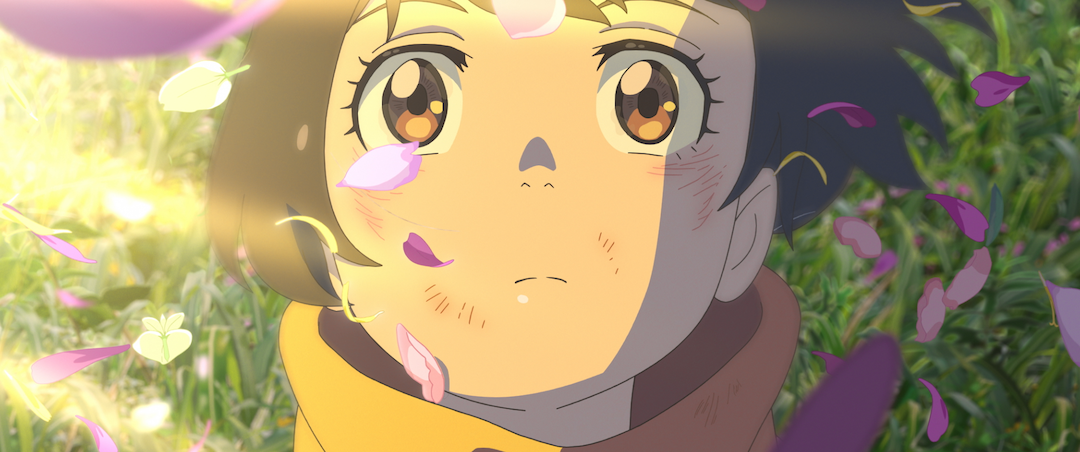
Makoto Shinkai needs no introduction. You’ll know a Shinkai film the moment the first scene opens onscreen. Lush, vibrant art, emotional devastation, and a hauntingly beautiful soundtrack are the staples of Shinkai’s storytelling arsenal.
The lauded anime film director captured the hearts of audiences worldwide with his critically acclaimed and widely successful 2016 film Your Name.. Earlier fans of Shinkai may remember him from smaller indie darlings such as 5 Centimeters per Second and The Garden of Words.
His latest film, Suzume, made waves at the Berlin International Film Festival in February this year as the first Japanese animated film to play in the competition in two decades. It now stands as the fourth highest-grossing anime film worldwide, grossing over $250 million in box office revenue by latest estimates. The film, which opened in many countries across North America and Europe earlier this month, is Certified Fresh on Rotten Tomatoes with a 96 percent rating as of April 18th.
RELATED: Suzume, Shinkai and the Everlasting Impact of 3.11
Crunchyroll sits down with Makoto Shinkai for an in-depth conversation on how he hopes Suzume will help viewers co-exist with the everlasting threat of environmental disaster, creating the perfect road trip soundtrack, and bringing audiences back to the theaters.
First, could you please introduce yourself and your latest theatrical release, Suzume?
Shinkai: My name is Makoto Shinkai, the director of Suzume. My career started about 20 years ago with Voices of a Distant Star, a self-produced short anime film. Over the last 20 years, I’ve continued my career in animation. Many of you might know me from the film I made in 2016, Your Name.. My most recent film is called Suzume. It’s a story of a girl who travels to abandoned places across Japan. It’s a tale of adventure. I hope you like it.
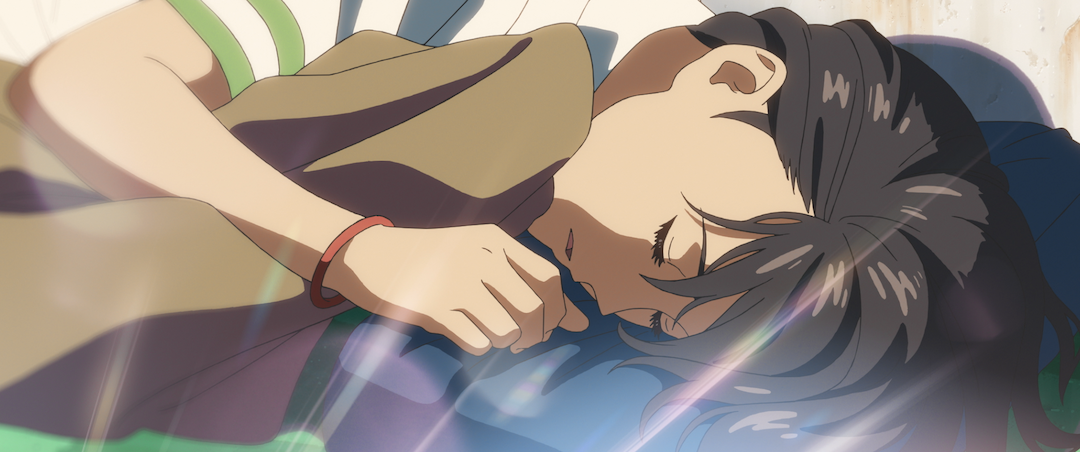
You began work on Suzume in early 2020. Was there anything in this film that you wanted to do differently than your last film, Weathering with You?
Shinkai: Each time I want to make something different, create something better than the last film. But I'm still far from where I want to be in terms of skills in making anime and film. I'm always thinking about what I can do better to make a more interesting film next time. Rather than focusing on what I'd do differently, I wanted my next film to be better, if not perfect, and that was my attitude going into this project. So it's hard to pinpoint what I did differently. I wanted to make a better film, and that was my initial thought.
In Suzume, you explore Japanese society’s relationship with nature and the looming threat of disaster, particularly after the Great Tohoku Earthquake. How have your feelings about that national tragedy changed over time? Do you feel as though Japan has healed since then?
Shinkai: When the disaster happened in 2011... it shook the whole country to the core, myself included. It changed many things. It changed society, and it changed my approach to animation. I gradually started to feel a sense of guilt in making anime. I felt that I wasn't helping anyone if I was simply making anime. The job of creating anime felt useless in helping the earthquake victims. But eventually... I started to explore ways to face and understand disasters that are only possible through anime and entertainment.
That led me to making Your Name. and Weathering With You and finally found my way to making Suzume. What I've been feeling in the process of making anime since 2011 is that not just earthquakes, but disasters in general are becoming more common in our lives. We're seeing more disasters. Japan has frequent earthquakes. Aside from earthquakes, the climate crisis is causing extremely heavy rain worldwide. We also experienced a global pandemic.
The pandemic started while I was working on Suzume. Our lives are now surrounded by disasters, and it probably won't decrease in number. We need to learn to live side-by-side with disasters. Since 2011, this feeling has grown inside me with each passing year. So it wasn't that I was trying to make a film on natural disasters. But if I wanted to tell a contemporary story, I couldn't avoid the topic. That's how I see it.
So with Suzume it started out as the coming-of-age story of a girl, but as I thought about where in Japan she'd travel and how and why she'd grow, I simply couldn't skirt around the topic. It had to be a part of the narrative. That's my honest feeling.
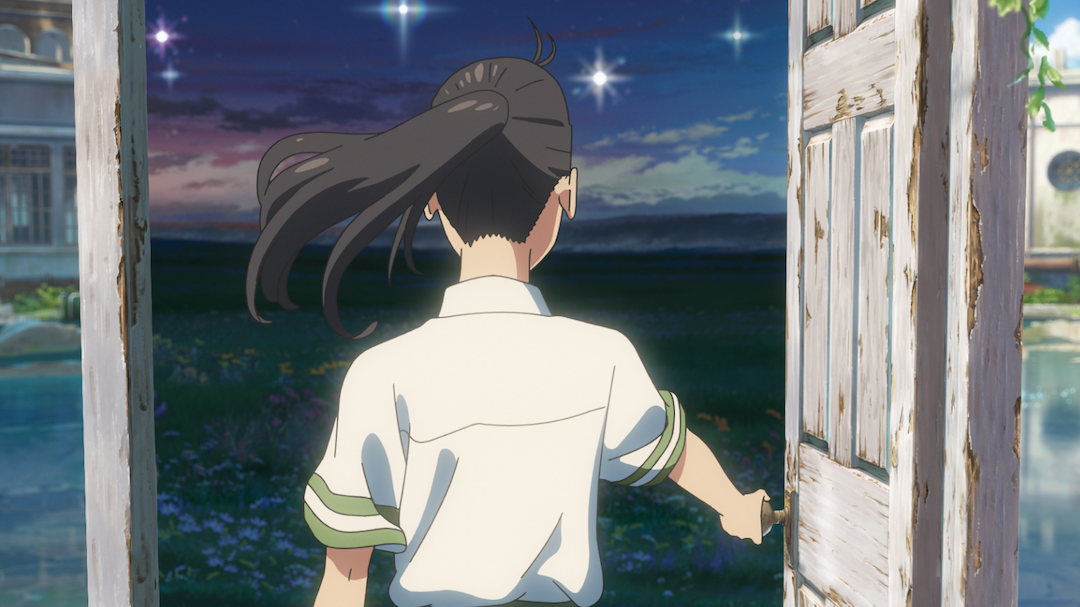
There is a recurring theme of people forgetting or not acknowledging places that once had meaning. For example, abandoned theme parks or schools. What were you hoping to show with Suzume revisiting these places firsthand?
Shinkai: There are many types of ruins in this film, and I think ruins are like wounds of that nation. If you think of the country as a body, then the ruins will be its wounds. It's like Suzume travels to the wounds throughout Japan, and she closes those wounds. She is traveling through Japan and healing its wounds. At the same time, she's tending to her own wounds. And ultimately, she heals herself and recovers from the disaster so that she can smile and take a step toward the future. I wanted to portray that process.
Speaking of ruins, I think the number of ruins is increasing in Japan. Like the one in the film, some ruins were abandoned due to natural disasters. For example, Chika's school was abandoned because of the landslide. While natural disasters can create ruins, other ruins are caused by depopulation, like the amusement park. I realize that not everyone who sees this film may catch this, but in the middle of her trip, Suzume goes to Fukushima. The disaster of 2011 caused a nuclear meltdown and made that area uninhabitable.
In Japan, ruins are increasing. The country's wounds are increasing. Having realized that, I wanted this film to be about the story of those ruins. I believe that more ruins are appearing throughout the world, just like in Japan.
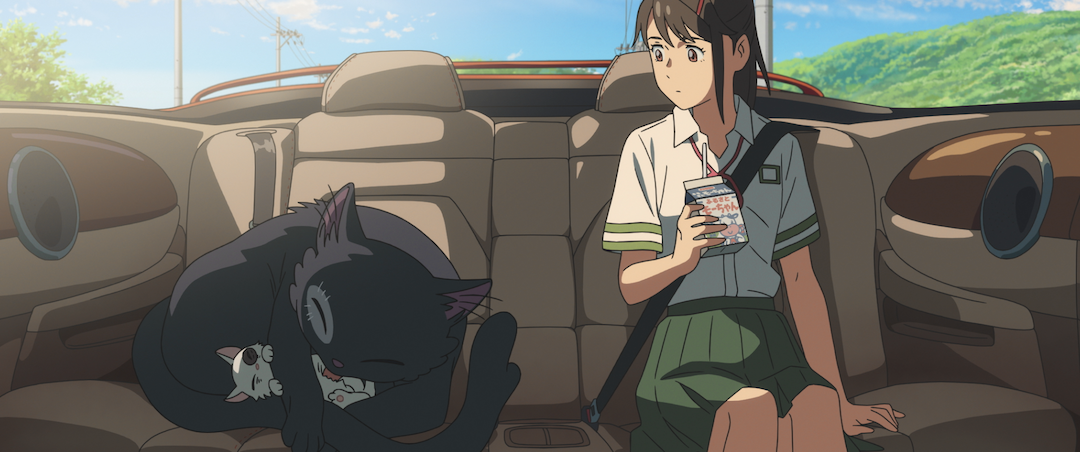
How did the road trip Suzume takes in the movie evolve over its production? Why do you think it was the best way to tell her story in this movie?
Shinkai: In the film, Suzume basically travels from west to east. This is because the 2011 Great Tohoku Earthquake is at the base of this story. The story itself determined the start and end of the film for me. Suzume grew up in Tohoku. When the Great Tohoku Earthquake hit Japan, she survived, but she lost her home. Just like many people had back then, Suzume moved to Kyushu in western Japan. That's why Suzume's trip has to start in the west and end in the east, her hometown.
The story dictated which cities Suzume would visit in her travels to some extent. In the first stop, Suzume visits Ehime in Shikoku. People in Ehime experienced torrential rain in 2018. Because of the heavy rain from the climate crisis, there were huge landslides. I wanted Suzume to visit a place that underwent a natural disaster. Then, Suzume visits Kobe, which underwent the Great Hanshin-Awaji Earthquake in 1995. After she visits there, she heads to Tokyo. Exactly 100 years ago in 1923, Tokyo underwent the Great Kanto Earthquake. So Suzume travels to these cities that experienced disasters, cities that overcame disaster and restored everyday life of people. I wanted Suzume to experience these cities.
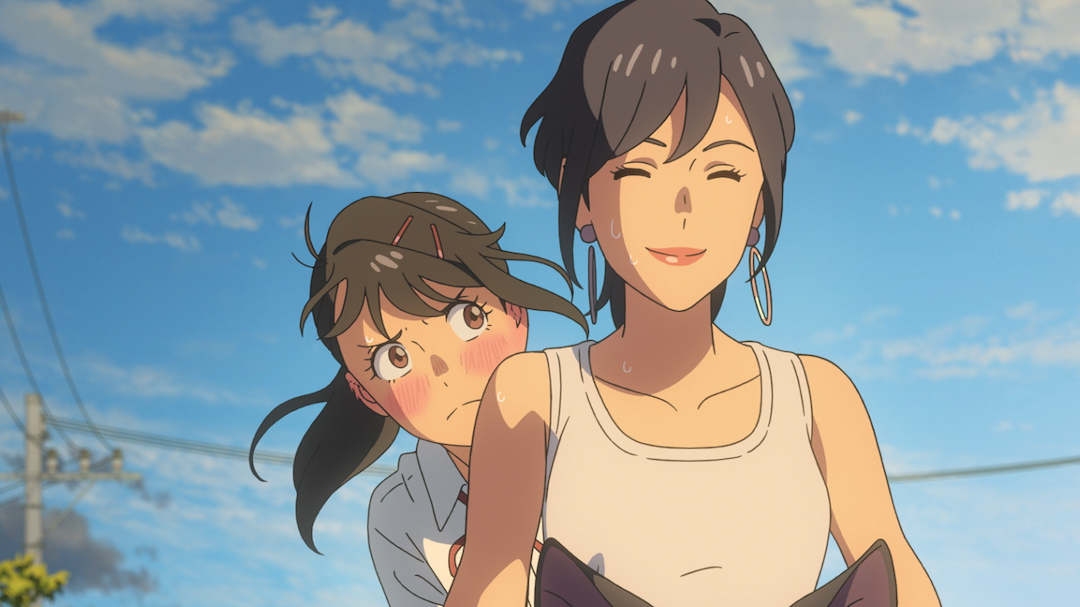
Have you ever taken a road trip similar to the one in Suzume?
Shinkai: It was quite a while ago, but I used to go on budget-friendly trips in college. They had these train tickets for unlimited rides for one day. I used to travel to Tohoku using those tickets. With no plan, I'd just hop on the train and find an inn wherever I ended up. After I started working in anime, I unfortunately haven't had time to travel. For this film, I got to travel for location hunting, following Suzume's journey.
Do you think these sorts of road trips Suzume takes are still popular in Japan?
Shinkai: As I mentioned before, we were in the middle of the pandemic while we worked on this film. The pandemic started in full swing in Japan as we started working on Suzume. As we made this film, we didn't know if we'd ever be able to go on a road trip like her. More importantly, we didn't even know if the film could be shown in theaters. Not to mention going abroad like this and interacting directly with an international audience. So as I made Suzume, I wondered if we'd ever be able to travel freely like her. I hoped that such a world would come back to us as I wrote about Suzume's journey. A lot has happened, but the world was able to overcome the pandemic. I'm very happy that I made it to LA to meet fans here.
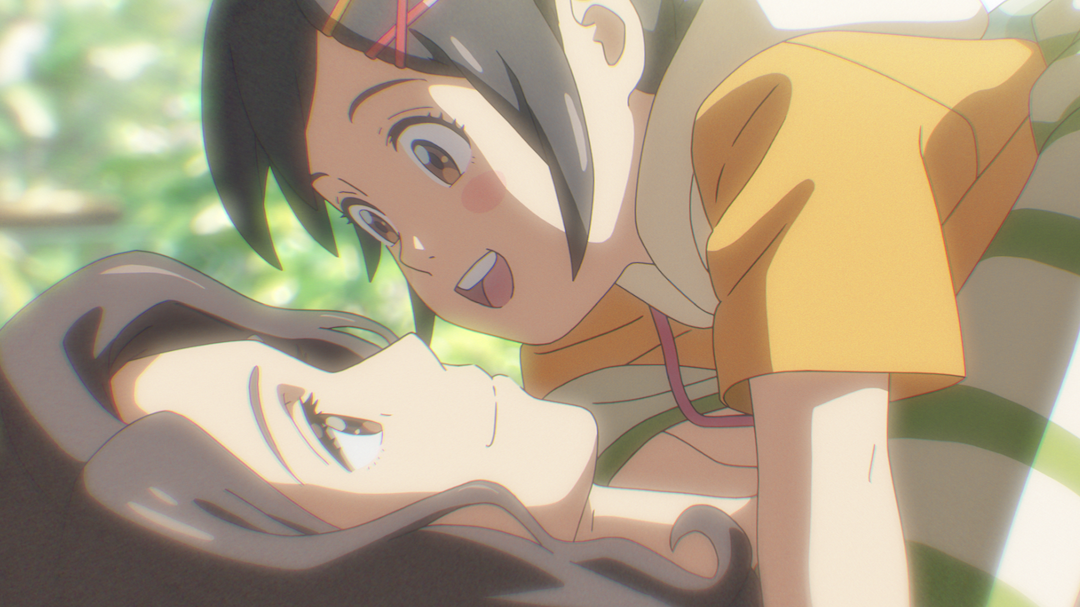
Music has always played an important role in your films. How did the soundtrack of Suzume help convey the themes of the film?
Shinkai: I worked again with RADWIMPS, a Japanese rock band. Yojiro Noda, the vocalist of RADWIMPS, made music for Weathering With You and Your Name. For Suzume, Yojiro and I discussed the idea of making music reminiscent of the sounds of the earth and wind. In Japanese, wind and earth is called fuudo and this term also refers to the nation itself. We wanted to create sounds that represented the country. For example, the drums that sounded like footsteps. Or shakuhachi, a traditional Japanese flute, to represent the sound of the wind. We aimed to create music that imitated nature.
One of the goals for the music in this film was to create music to be enjoyed in theater. We didn't know if people would come back to the theater to see this film, but I wanted people to experience this film in the theater. Yojiro and I wanted to collaborate with someone who's versed in film music, so I got in touch with Kazuma Jinnouchi, a Hollywood composer based in Seattle. He also does game music, and we approached him. I asked him to create music that allowed us to feel the atmosphere of Japan through the 5.1 surround sound speakers of the movie theater. He obliged. His help really made this film a theatrical experience. He made this film's musical experience more powerful than Weathering With You.
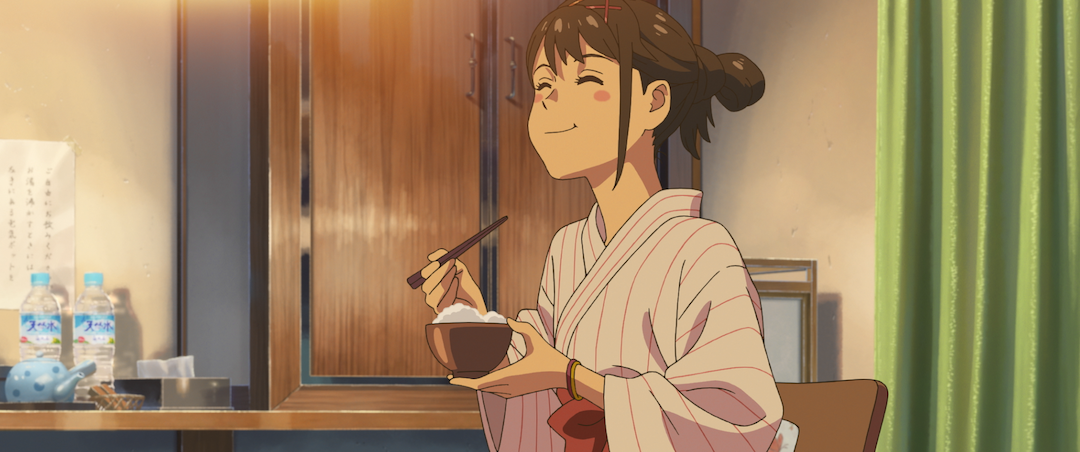
Did you give RADWIMPS and Kazuma Jinnouchi any specific notes when they were working on the compositions?
Shinkai: We go into exceptionally fine detail when creating film music together. My orders could be so minute that I was worried Yojiro would leave the project. But I can't help it because music is such an integral part of the film. Just as important as the dialogue, the script, or even the animation itself, music is a crucial part of the film, and it requires incredibly detailed discussions.
RELATED: Japanese Rock Band RADWIMPS on the Sounds of Suzume and Finding the Perfect Feature on TikTok
I am such a huge fan of RADWIMPS, so I'd rather not give them so many notes, but in making film music, detailed discussion is a must. Like asking them to delay the sound of the piano or the drum by half a second. Note by note, I repeated small adjustments like that with RADWIMPS to create music that perfectly matched the film.
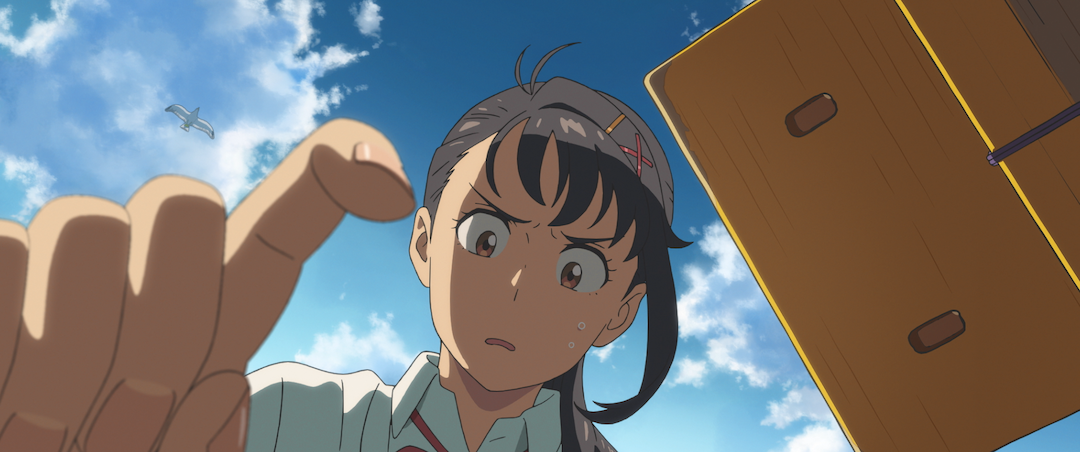
There was also a reference to Penguin’s Memory: Shiawase Monogatari (ペンギンズ・メモリー幸福物語) and the song “Sweet Memories” which was very surprising! Was this a specific choice on your behalf, and what inspired you to include it?
Shinkai: There are some songs that I feel all Japanese people have at least heard once. That's why I chose music from the Showa era. Some are my personal favorites, while others were a perfect fit for a scene. I used those old-timey songs in the second half of the film for a reason. I chose those recognizable songs in the film because I wanted the audience to feel that the world in the film is just like our world.
For example... When they leave Tokyo to go to Tohoku, they play "Rouge no Dengon." As you may know, it is the theme song of Hayao Miyazaki’s Kiki’s Delivery Service. Many Japanese people will be reminded of that film when they listen to it. Other songs that come up later are also popular in Japan that everyone knows. Hearing familiar songs or songs from different titles, people will think that the world of the film is the same as the Japan we live in today.
RELATED: Stunning Suzume Anime Film Mural Unveiled in Time-Lapse Video
This film is about the 2011 Great Tohoku Earthquake. Just like it happened 12 years ago in our reality, it happened in this film too. There are Studio Ghibli works in the real world, and we grew up watching them. Suzume also grew up watching these movies. Same thing with the other songs. I know this song too, so maybe this is our world, not a fake one in film. I hoped that those songs would have that effect on the Japanese audience. Then, Suzume opens her diary to the page for 3.11. and it's revealed that she was the victim of the earthquake. That's when people see that Suzume is an extension of our reality. I used those songs to create that structure.
I had to ask myself if it was ethical for me to depict a factual tragedy like this in an entertainment film like Suzume. I discussed it a lot with the team as well. Being over 12 years ago, many people are starting to forget about that disaster. My daughter is 12 and was born in the same year of the earthquake, so she doesn't remember the earthquake at all. But it was a huge disaster that changed Japan. By depicting it in an entertainment film, I thought it could connect the generation that knows it and the one that does not. Suzume was made with the idea of connecting the younger and older generations of Japan. If it could also bring together the audience in Japan and the world, I couldn't be happier.
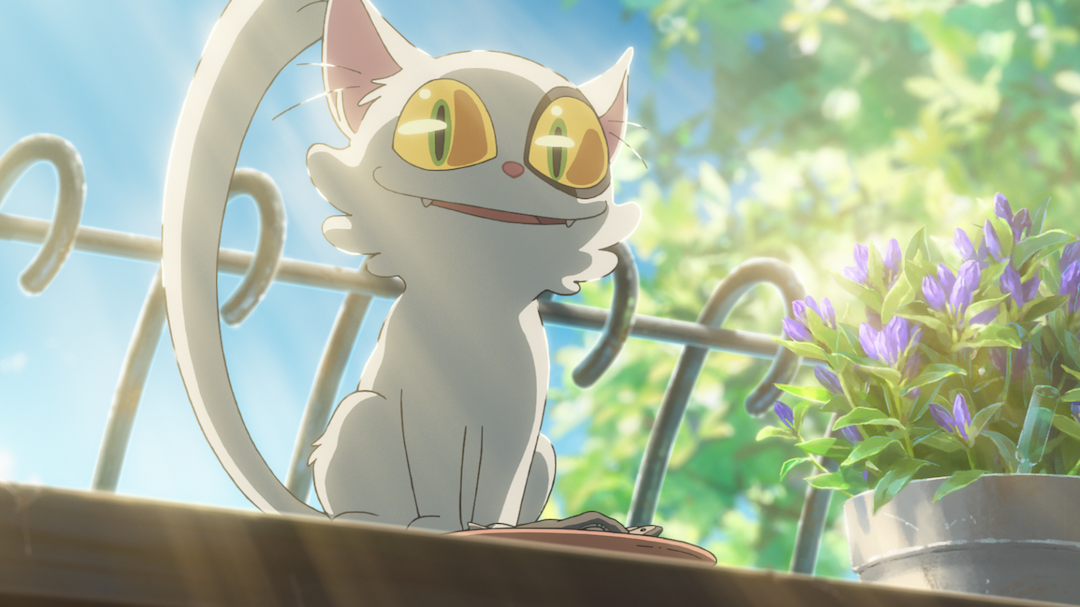
Thank you for your time. Could you please give a closing message to the fans?
Shinkai: I feel like Suzume is the culmination of the last 20 years of my career. Looking back, I think I've always wanted to talk about our reality in an entertainment film. I spent the last 20 years making anime to cultivate and expand my skills to do that. Now I could come to the US with this film, and it's already a remarkable success in Asia. I'm truly grateful to be able to bring the film to the rest of the world. Nothing would make me happier if seeing this film could help you be a little more excited about living tomorrow. Have a great time at the movie theater.
You can watch the video of this interview on the Crunchyroll YouTube Channel. Suzume is now playing in North America and you can buy your tickets here. Be sure to catch this film in theaters and experience the magic on the big screen.
This interview was conducted on April 2, 2023 in Los Angeles through an interpreter and has been edited for length and clarity. Kyle Cardine contributed additional questions and Lauren Moore provided additional assistance for this interview.
Kristine Don is a Senior Manager on the Editorial team at Crunchyroll. She oversees our global newsrooms in Spanish, Portuguese, French, German, Italian, Arabic, and Russian.
By Crunchyroll feed


Post a Comment